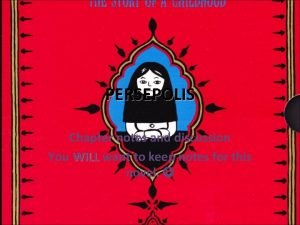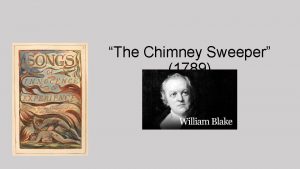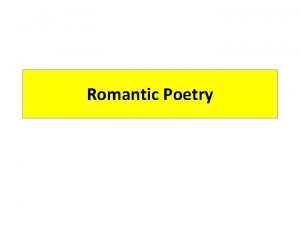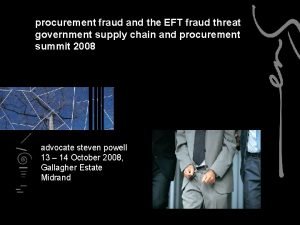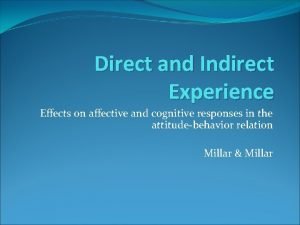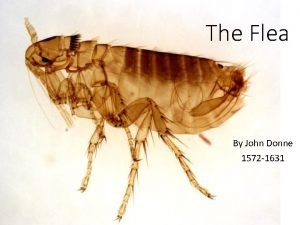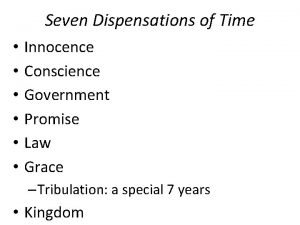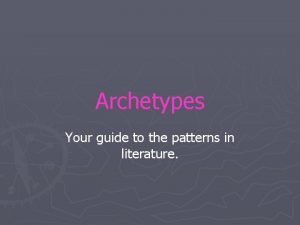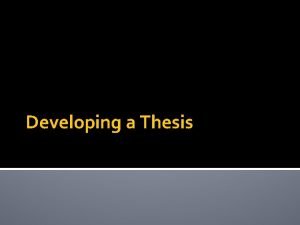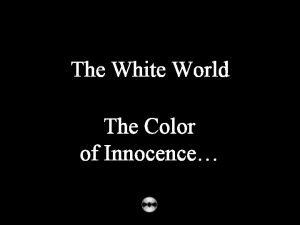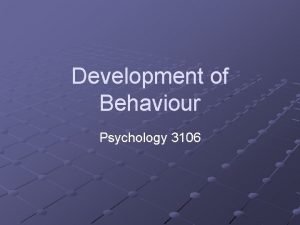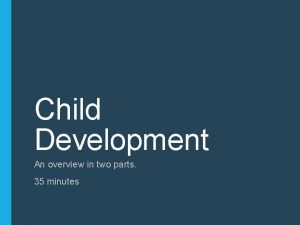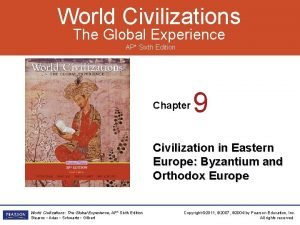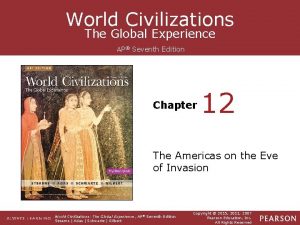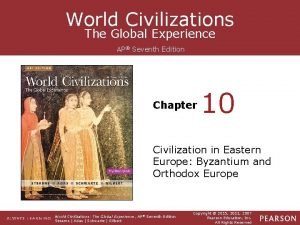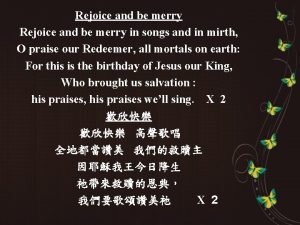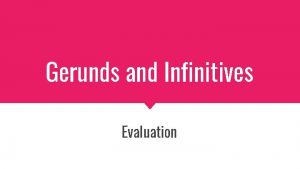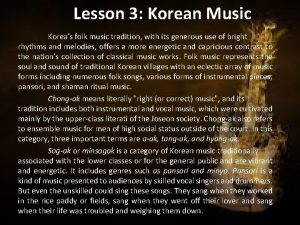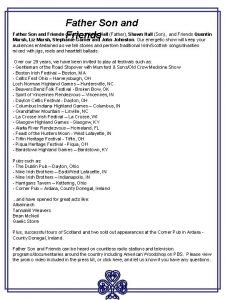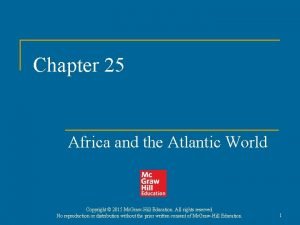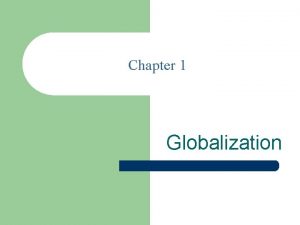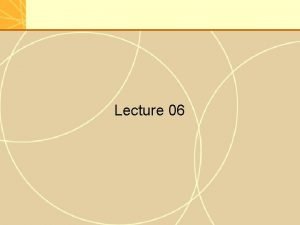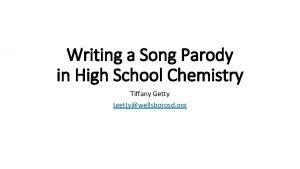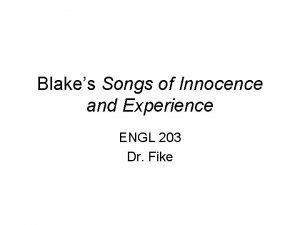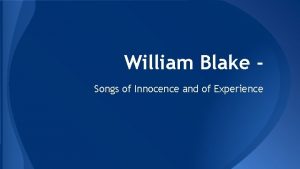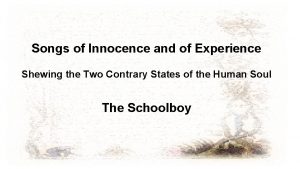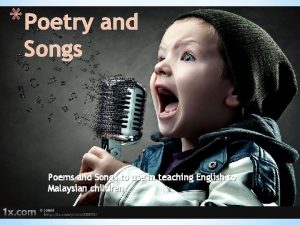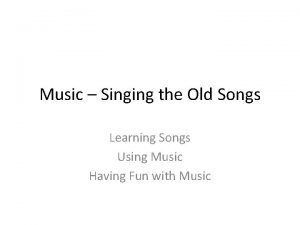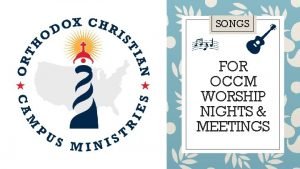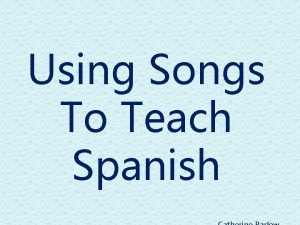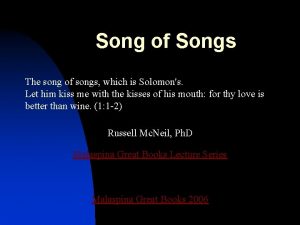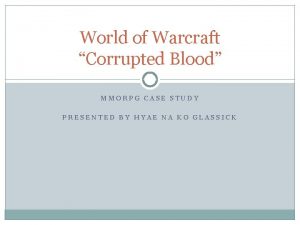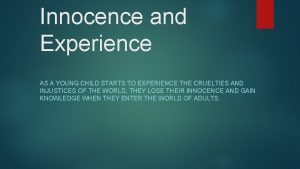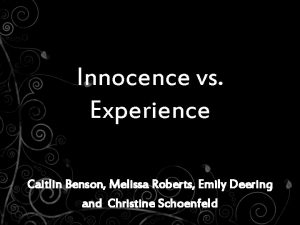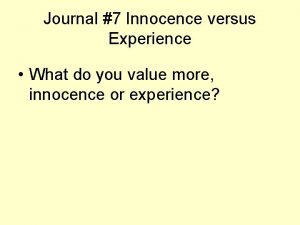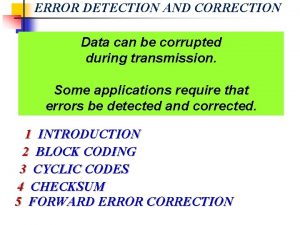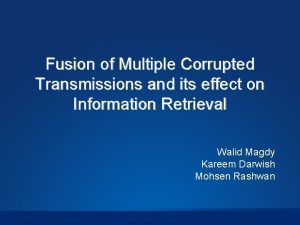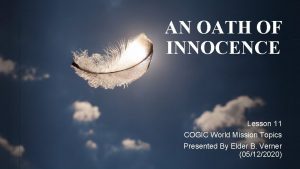Corrupted world in Songs of Innocence and Experience



























- Slides: 27

Corrupted world in Songs of Innocence and Experience

Introduction It is clear that Songs of Experience shows the corrupted world from Songs of Innocence, and Blake uses theme of corruption in many different ways to criticise the society in which he lived in as well as to emphasise his beliefs. The presentation of corruption comes in many different forms in Songs of Experience with the aid of Songs of Innocence. These include: the disparity between the adult world and childhood which leads to exploitation and misunderstanding; the capitalist society which upholds the divide between the deprived and the wealthy; sexual repression, organised religion upholding the hierarchal system…

The disparity between the adult world and childhood which leads to exploitation and misunderstanding Blake saw childhood as the world of Innocence and hence the poems in Songs of Innocence mimic nursery rhymes or children’s songs. He interpreted the world of Experience as the one of adults in which they grew out of their innocence. The industrial revolution, believed by Blake, led to a plight of chimney sweeps, which meant children were exploited. Moreover, the belief of society at the time was that children were born ‘naturally evil’ do to Original Sin, but Blake was against this and agreed with Rousseau’s theory that the new born were the closest to God, as they had just come from his creation.

The capitalist society which upholds the divide between the deprived and the wealthy The industrial revolution led to a bigger segregation between the poor and the rich, and this forced the deprived members of society to sell their children as apprentices or chimney sweeps, and women were forced into prostitution to earn a living. The rich however gained the benefits of the industrial revolution with factories and businesses. Nonetheless, this was through the exploitation of the poor, who worked for them. As a result, Blake despised the industrial revolution which had the aim to provide more work and improve living standards, but ironically, the social reforms led to more poverty.

Sexual repression Blake believed in sexual liberation even though he did not practice this himself as he feared it would not please his wife, Catherine. Therefore, he believed that sexuality should be expressed freely as long as it did not hurt others. He saw that humanity had used religion as an excuse to bind themselves to rules which inhibited their freedom to express. The imagination of humanity was thus restricted, and Blake believed that it needed to be freed again.

Organised religion upholding the hierarchal system Blake was very spiritual but saw the church as an instrument of repression rather than accessing God’s benevolence and forming a relationship with Him. In order for humanity to go to church and think they were close to God, they had to abide by the priests rules, and therefore Blake may not be criticising the church directly but instead the priests that used the church and religion as instruments to repress society. By doing so, the rules that were seen as religious and society abided by, led to the continuation of the hierarchal system because the laws created were results from religious rules created by the priests and religious institutions.


Poems to consider: 1. 2. 3. 4. 5. 6. 7. 8. 9. The Chimney Sweeper (Experience) The Chimney Sweeper (Innocence) Holy Thursday (Experience) Holy Thursday (Innocence) The Little Vagabond (Experience) The Sick Rose (Experience) The Garden of Love (Experience) London (Experience) The Little Boy Lost & Found (Innocence)

The Chimney Sweeper (Experience) “A little black thing among the snow” – recognised by their job, and have little importance beyond it. Contrast is stark to show the chimney sweeps are pushed out of society. Coldness of weather conditions show the extreme conditions they work in. Good and evil spring to mind – evil inflicted on the child. “weep” – establishes sadness and desperation for the chimney sweeps. Their offering of service denoted (they used to call ‘sweep’), but missing ‘s’ shows chimney sweep as still being very young, can’t even pronounce the words properly. Repetition of ‘w’ sound reinforces sound of child weeping, conveys overall feeling of injustice and exploitation. “clothes of death” – many children chimney sweeps die young due to respiratory diseases from breathing in the soot, or suffocation in the narrow chimneys. Shows danger of job.

“praise God & his Priest & King” – church upholds the hierarchal structure and turns its back on those who require help. Parents use religion as justification for suffering of child, yet it is not righteous to let them live such degrading lives. Hence, a righteous action at the expenses of others is contemptible to Blake. “a heaven of our misery” – oxymoronic shows child’s acknowledgement of a false religious hope. Society enforces a religious promise of heaven in order to keep the children in their miserable state. Social control and exploitation. Simple, direct language – Blake reveals the hypocrisy of adults through the words of a child.

The Chimney Sweeper (Innocence) “weep weep” – words suggest the lisping child plying his trade “sweep”, but repetition makes it sound like a small bird, thus illustrating their vulnerability and unhappiness. “Your chimneys I sweep” – accusatory finger at reader, written in a time of change (industrial revolution) thus Blake satirises society, showing the complicity of all adults in the cruel exploitation. “in soot I sleep” – impossibility to escape the filthy conditions imposed upon the children. Their rags and skin full of the soot from the chimneys which they breathed in causing respiratory disease. Also euphemistic metaphor for death, in which many children chimney sweeps would die due to the conditions they worked in.

“I said / hush Tom” – God’s virtue is replicated in the children’s positive Christian quality of forbearance and comfort of each other. “soot cannot spoil your white hair” – juxtaposition of dark and white shows evil verses good/innocence. “lock’d up in coffins of black” – enslavement of the children, claustrophobic dark chimneys and the living death they endure daily. “if he’d be a good boy, / He’d have God for his father & never want joy” – ambigious: for those who exploited children or supported the status quo, it would mean to obey his master and not complain; for Blake, it meant that he would be true to his imagination, which Blake saw as the divine part of human beings.

Holy Thursday (Experience) “Is this a holy thing to see / In a rich and fruitful land, / Babes reduced to misery, / Fed with cold and usurous hand? ” – ironic rhetoric used to highlight the corruption and hypocrisy of the church. “usurous” denotes church only helps the children for self-interests. The metonymy with “hand” represents not merely the guardians, but the whole city to show a general social responsibility. Lexical field of sadness – sorrow and misery in the world of experience, in which society exploits poorer members for their own gains.

“And their sun does never shine. / And their fields are bleak and bare. / And their ways are fill’d with thorns. / It is eternal winter there. ” – repetition of “And” makes it seem misery is never ending. Metaphors describe the situation of the helpless children: “sun” symbolic of hope shows the children cannot escape the poverty; alliteration of “bleak and bare” connotes desolation; “thorns” suggest children as sacrificial victims like Jesus on the cross. Sun and rain are necessary for life, thus the absence of them suggests the children are slowly dying.

Holy Thursday (Innocence) Ironic tone adopted for poem, to show hypocrisy of charity in church – the church is a misnomer. “their innocent faces clean” – children’s vulnerability and naivety illustrated. Suggestive that the children are normally not well looked after, only for appearance do the church “clean” the children. “The children walking two & two” – controlling and structured society, rigid rules. Links to biblical reference of Noah’s Ark and the pairs of animals. “Grey headed beadles walk’d before with wands as white as snow” – image like prison guards who use their “wands” (euphemistic for canes? ) to control the children. Another interpretation is the idea of children being sexually abused in that the “wands” are phallic symbols.

“like Thames waters flow” – simile is ironic, as charity event is trying to reduce number of children orphans, yet the description shows there is many. If society was helping the poor, surely there would not be “multitudes” of children there. Idea that the river flows one way only, thus the children have no way out of the corrupted society. “harmonious thunderings” – oxymoronic as “harmonious” suggests joy and pleasure, whilst “thunderings” connote chaos and anger. Children are forced to put on a face to please the public, but in reality, they are filled with misery through the abuse and exploitation that is inflicted upon them. “Then cherish pity; lest you drive an angel from your door” – sarcastic intent to denote how charity tricks people.

The Little Vagabond (Experience) The opening repetition of ‘Dear Mother’ establishes a childlike tone, which is reinforced by the simple connectives of ‘but’ and ‘and’. “the Church is cold” – physical cold, but also the coldness of the church to understand the needs of people. “But the Ale-house is healthy & pleasant & warm” – physical warmth as well as the fact that he is treated better in the “Ale-house” more than the church. “pleasant fire, our souls to regale” - It is not just a question of physical warmth here but the warmth of passion and energy that nurtures the spirit. Describing Dame Lurch as ‘modest’ can imply humility, or primness and propensity to shame. Her treatment of the children suggests that she afflicts their spirits as well as their bodies.

The Sick Rose (Experience) The rose is a symbol of many things. It may suggest the name of a woman, it may be a symbol of love and romance, could be a symbol for female sexuality, or even a reference to England. The worm has many connotations which are important – its role of returning a corpse to the earth, suggestive of the serpent (Satan) that tempts and corrupts Eve in the Garden of Eden, someone of a lower class status due to the image of worms living underground, agent of destruction, and a phallic symbol. “flies in the night” – dynamic verb shows quick urbanisation of Britain, could connote freedom, and due to the strange, unnatural idea of a worm flying, Blake highlights the freedom of imagination. Whereas “night” is connotative of evil or the industrial revolution in which the smoke blackened the cities.

“In the howling storm” – negative connotations to show industrial revolution as a negative thing, as well as demonstrating the noise that it created. “howling” is animalistic and denotes pain or emotion (distress or pleasure). “storm” links with nature, in that nature cannot be tamed, unlike humanity (idea of freedom), also shows chaos. “bed” – flower bed/human bed in which sleep and sexual liberation happens. “crimson joy” – colour could suggest female genitalia/ blood highlighting sacrifice or death. “And his dark secret love / Does thy life destroy” – using the pronoun “his” describes the “love” being in possession of the male. The rose’s life being destroyed by this love possibly implies an act of abuse. “dark secret” shows it is hidden and secretive, sexual oppression; “dark” could also refer to the female genitalia or the evil and corruption. It could be “secret” as it is unwelcomed by society, or it may simply be a secret affair.

The Garden of Love (Experience) “Garden of Love” – link to Garden of Eden, in which Adam and Eve were free to express themselves, and the time before the Fall. “A chapel was built in the mist, / Where I used to play on the Green” – The “chapel” is destroying nature, symbolic of the established church and its gradual taking over of the growing mind. Real sense that the building does not belong “on the green”. The manmade world has imposed itself upon the beauty of the pastoral landscape: this manufactured world does not belong amongst the natural world of the “green”. “The gates of this Chapel were shut, / And ‘Thou shalt not’ writ over the door” – control and restriction that established church imposes on its members. The emphasis on punishment and sin, rather than on joy, is typical of Blake’s view on the institution. Idea that the church does not allow members to reach God if they do not conform – just like Blake as a Romantic, society saw him as an outcast.

“sweet flowers bore” – freedom to express sexuality in “Garden of Love” in contrast to the rules that the church imposes on its members, restricting their expression. “And I saw it was filled with graves, / And tombstones were flowers should be” – contrast between “sweet flowers” and “graves And tombstones” to juxtapose the ideas of life and death, but also to signify how the church is determined to suppress sexual love and freedom and to bury natural desires. “Priests in black gowns, were walking their rounds, / And binding with briars, my joys and desires. ” – the internal rhyme shows Blake view of the church as being different to the priests. He shows that it is the priests that restrict humanity, and not the church in itself. Priests use religion as justification for repression and upholding the hierarchal system. They appear ominous and like prison guards walk around the chapel to show that society can only enter the church with the help of the priests, and thus they are able to exert their control on society. The thorns of the briars are the prickings of conscience that the church instils through making people feel guilty about their natural feelings. Rather than the “Priests” facilitating the speaker’s relationship with God, it seems that the clergy are a barrier between the speaker and their natural “joys and desires”, thus they are instruments of control and restriction.

London (Experience) “I wander thro’ each charter’d street, / Near where the charter’d Thames does flow” – “charter’d” refers to the granting of rights to land or rents, the implication being that most of London is owned by a small number of people or corporations. It also has connotations of mapping out, with hints of confining and defining limits. There is also an ironic association with the idea of a charter of rights, which does not extend to the poor and dispossessed. Therefore, it gives freedom to certain individuals whilst restricting others. “mark in every face I meet / Marks of weakness, marks of woe” – the word “mark” to mean ‘notice’ is balanced by its second use to mean ‘signs’. The “weakness” can mean physical or moral or both and is combined with “woe” to show a condition of unhappiness and debility in the citizens. The repetition serves to point up the number of marks that are visible.

“In every cry of every man, / In every Infant’s cry of fear, / In every voice, in every ban, / The mind-forg’d manacles I hear. ” – repetition of “every” reinforces the idea that everybody suffers. Use of “man” and “Infant’s” on separate lines shows the difference in how they suffer. “Man” cries because of the evil and suffering that is inflicted upon them, whilst the children cry in “fear” of what may happen. Children are aware of the dangers present in society, but too innocent and naïve to comprehend why. “ban” suggests rigidity and structure to social order, whilst “mind-forg’d manacles” sums up the poem. It refers not only to the way in which the poor were oppressed legally, but also the way in which they were ‘brainwashed’ by the church into believing that the poverty of their condition is ordained by God and they will enjoy their reward in heaven. Indicative of the way in which people acquiesce in this state of affaires, instead of rebelling against their oppressors. Blake also shows humanity’s restriction on imagination through the “mind-forg’d manacles” in which he strongly opposed, and believed that the state of innocence could only be achieved if we allowed our creative imagination to lead.

“How the Chimney-sweepers cry / Every black’ning church appals; And the hapless Soldier’s sigh / Runs in blood down Palace walls” – the church is “black’ning” because of their failure to act against injustice, for instance the use of child chimney sweeps. The blood of soldiers running down “Palace walls” is a comment to show the pointless slaughter of soldiers fighting wars for the benefit of governments. “How the youthful Harlot’s curse / Blasts the new-born Infants tear / And blights with plagues the Marriage hearse” – prostitution and venereal diseases were rife in Blake’s time, and children would sometimes be forced to become prostitutes through hunger and desperation. Without protection, many young girls became pregnant and often died as a result of dangerous abortion attempts or in childbirth. The “Harlot’s curse” is thus towards the men who use her, the State and the Church whose duty is to protect her and the society that allows these things to happen. The plosive technique employed shows destruction and death in “blights”, “blasts” and “plagues” as does the “Marriage hearse” which is oxymoronic. The church’s belief that sexual love is sinful leads to its placing a restriction on sexual enjoyment within marriage; Blake saw marriage as legalised prostitution, in that a woman would be contracted to the highest bidder. Associations of the diseases that men who have been with prostitutes could take home to their wives is also present in the stanza.

The Little Boy Lost (Innocence) “Father, father, where are you going” – child persona established, but “father” could be referring to his actual father, God or even a Priest for guidance. The child could be asking the priest or God for guidance through the sinful world, or could be the uncaring father leading his child into the forest of experience and there abandoning him. “Speak father, speak to your little boy / Or else I shall be lost. ” – tenor shows pathos and urgency; the child is worried as he is lost and no-one guiding him. Second stanza brings no response from the father-figure and the child is lost alone in the wet and the dark. This is a very deep and primitive fear for children and the reader may empathise with him. Being in the “mire”, it adds to his misery, for fear of sinking. “away the vapour flew” – different interpretations: if vapour is a mist, then it represents concealment and obscurity, so for it to depart means clear sight or revelation must be at hand or vapour could refer to his father for actually disappearing and no longer visible to little boy, creating more empathy.

The Little Boy Found (Innocence) “led by the wand’ring light” – representative of a guardian or angelic spirit (God) to lead the boy back to his mother. “God ever nigh, / Appeard like his father in white” – Blake shows God as being omniscient and always alongside humanity, providing protection, by the use of the adverb “ever”. The colour “white” is a symbol of goodness and purity whilst the simile “Appeard like his father” shows God as the ultimate father figure of which the little boy’s father could not achieve. Links into religious belief that humanity is God’s creation and thus we are all his children. God restores the little boy to his mother to show that he is not ready for the journey in the world of Experience. However, she has been searching in the “lonely dale” whilst he has been in the “lonely den”. Both places of innocence demonstrates the mother in contrast to the father, she who has been looking for him, whilst the father has been loosing him. The fact that she is “weeping” and “pale” shows the grief and worry of the caring and protective parent.

Conclusion: Corruption is a prominent theme in Songs of Experience, which with the help of Songs of Innocence, we see the great contrast in each world that Blake presents. “The first part sets out an imaginative vision of the state of innocence: the second shows how life challenges and corrupts and destroys it” (C. M. Bowra). Blake presents corruption through many different forms, from sexual oppression to the disparity between adults and children. “His compassionate heart was outraged and wounded by the sufferings which society inflicts on its humbler members (C. M. Bowra). Blake believed that for humanity to live the world of Innocence without corruption required religious freedom, sexual freedom and individual freedom.
 Persepolis questions by chapter
Persepolis questions by chapter Chimney sweeper songs of innocence
Chimney sweeper songs of innocence Holy thursday (songs of innocence)
Holy thursday (songs of innocence) Eft fraud
Eft fraud Secure coding principles and practices
Secure coding principles and practices Indirect experience examples
Indirect experience examples Mark but this flea
Mark but this flea Promise of innocence
Promise of innocence Archetypal patterns definition
Archetypal patterns definition Theme statements about truth
Theme statements about truth The color of innocence
The color of innocence Innocence examples
Innocence examples Experience expectant vs experience dependent
Experience expectant vs experience dependent Early experience vs. later experience
Early experience vs. later experience World civilizations the global experience ap edition
World civilizations the global experience ap edition World civilizations the global experience 7th edition
World civilizations the global experience 7th edition Twantinsuyu
Twantinsuyu World civilizations the global experience 7th edition
World civilizations the global experience 7th edition Rejoice and be merry in songs and in mirth
Rejoice and be merry in songs and in mirth Remember to or ing
Remember to or ing Songs of faith and praise paperless hymnal
Songs of faith and praise paperless hymnal Used in both the folk and classical court music of korea
Used in both the folk and classical court music of korea Father son and friends songs
Father son and friends songs Ap world history chapter 25 africa and the atlantic world
Ap world history chapter 25 africa and the atlantic world The changing world output and world trade picture
The changing world output and world trade picture The changing world output and world trade picture
The changing world output and world trade picture You are our treasure
You are our treasure Chemistry songs for high school
Chemistry songs for high school
